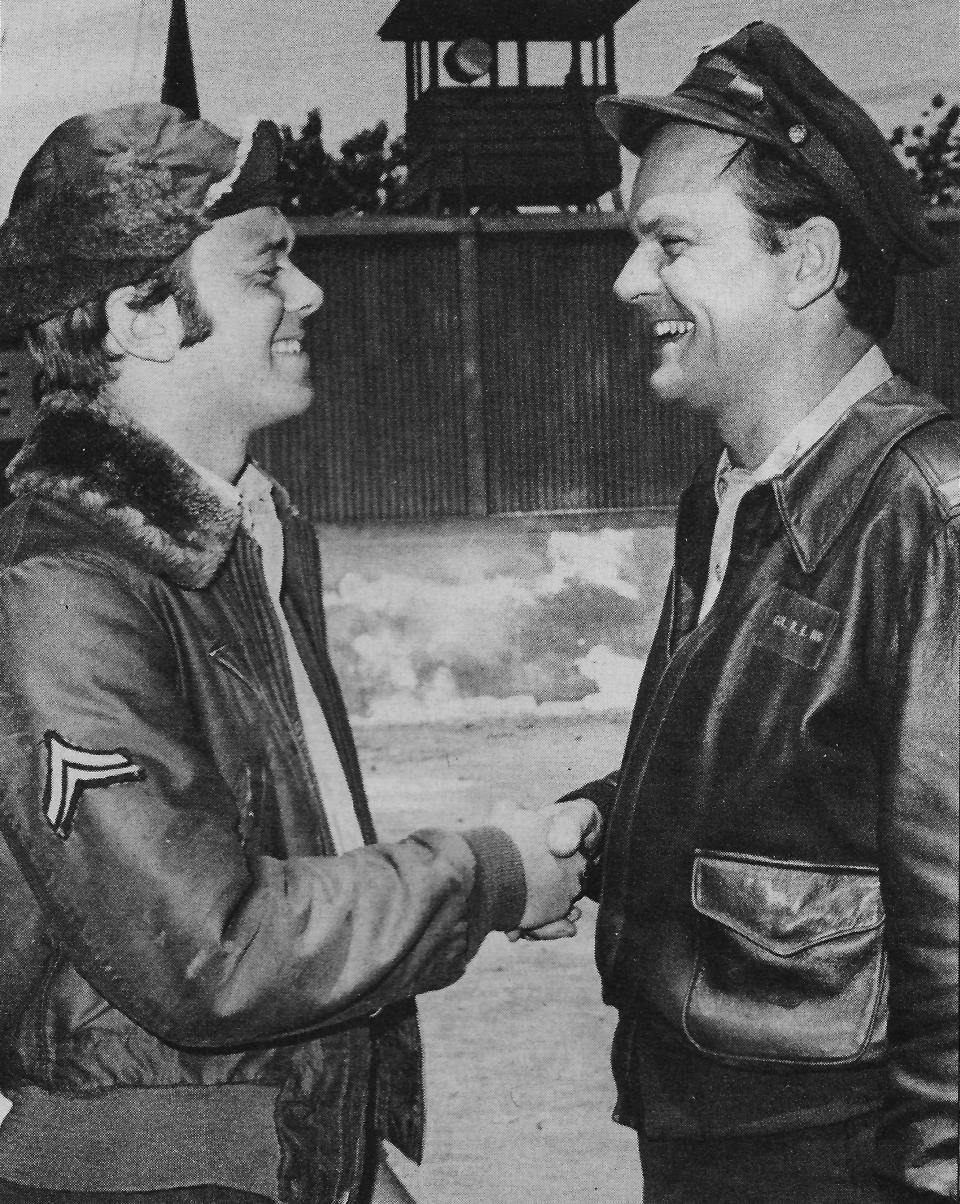Robert Crane spins a tale of desperation with nods to his real-life murdered father

- Oops!Something went wrong.Please try again later.
- Oops!Something went wrong.Please try again later.
For some, the search for love, companionship and meaning in one's life can be awkward, painful, even pitiful. Such is the theme of "Beyond Where the Buses Run: Stories," a new collection of short stories that deal with, in the words of writer and journalist Joseph B. Atkins, "a special kind of American loneliness and quiet desperation."
The book features stories from Theresa Griffin Kennedy, who edited the collection; Joe Coyle; Christopher Fryer; Meagan Bejar; Kari Hildebrand; and frequent desert dweller Robert Crane.
Crane has co-authored 10 books, including "Crane: Sex, Celebrity, and My Father's Unsolved Murder," about the 1978 homicide of "Hogan's Heroes" star Bob Crane. His other tomes cover such subjects as Jack Nicholson, Bruce Dern, Tom Mankiewicz, SCTV, baby boomers, bartenders and O.J. Simpson. He was also a 20-year contributor to Playboy magazine and co-writer of the TV movie "Hostage for a Day," which was directed by John Candy.
Not to be confused with prolific fiction writer Robert J. Crane (no relation) or Crane's half-brother Robert Crane ("Wacky show business family," he says. "I was told it was my stepmother's favorite stepfather's name"), Crane has conducted and written a number of high-profile interviews with celebrities, including Koko the gorilla who mastered sign language and taught the world about the emotional capacity and cognitive abilities of certain animals.
While not a current resident of the Coachella Valley, Crane has a long history in the desert, including being a regular contributor to Palm Springs Life, Coachella Valley Independent and the now-defunct Highway 111 magazine. "I love the desert and spend a lot of time there," he says.
"Wingding," Crane's offering in "Beyond Where the Buses Run," tells the story of Tom Taylor, a down-on-his-luck Bukowski-esque Arizona man who strives to find focus and meaning in his life. His home is a 1968 Chevy with 197,000 miles on it, he works the graveyard shift at a 24-hour go-kart track, his relationships with women are bizarre to say the least, he has a half-brother with whom he shares a first name and he's estranged from his TV star father.

"I was very influenced by a writer named Tom McGuane, (author of) 'Ninety-two in the Shade,'" Crane says. "He's written screenplays for two of my favorite movies, 'The Missouri Breaks' and 'Rancho Deluxe' from the '70s. When he came out in the '70s, '80s with his first couple of books, I was just blown away by his style. That really influenced me.
"McGuane, to me, writes like a scriptwriter. When I'm reading his words, I'm seeing what's going on a screen. And I tried to make this short story the same thing, where hopefully you're seeing images and you're feeling the heat of the desert and all that stuff as you're reading it."
Crane's Tom, as Kennedy writes in the book's intro, is "touched by the dark and sometimes malevolent energy of the entertainment industry and its requisite violence and irrevocable losses."
"Tom is partly me, partly characters or actors I was heavily influenced by who I thought were cool and had that little violent streak to them," Crane says. "And they could explode at any minute like Jack Nicholson, Dennis Hopper, Sam Shepard — those cool guys who would be driving their pickup truck down Route 66. I was influenced by them."
Some readers might find some of the story's autobiographical aspects sad, especially when Crane writes of Tom: "He was in awe of his father. He hated himself."
"I have gone through periods of hating myself," Crane admits. "You hit the highs, you hit the lows. I'm not saying I'm manic-depressive, but I have gone through stages like that where you think everything you're doing just doesn't add up to much, and then you're watching other people around you and everybody else seems to have it going on but you.
"And yes, in certain regards I was and am in awe of my dad in terms of his work ethic and seeing things through to the end in terms of work. Far less successful in his relationships. He was married to my mom for 20 years and then had a second marriage, which only lasted seven because he was murdered. But in terms of the small-town Connecticut guy who came out west and built a radio career in L.A. and then started getting acting jobs and then finally 'Hogan's' ... yeah, I'm in awe of that. Oh, and he was a pretty good drummer, too."

Even though some aspects of the story seem clearly autobiographical, others are merely inspired by real life. For example, Crane's first wife, Kari Hildebrand, a fellow writer with four stories in this collection, died of cancer in 1993, while Tom's wife, also named Kari, left him for an art professor.
While "Wingding" isn't light subject matter, Crane manages to inject plenty of humor into the narrative because, as he says, " even in the worst of situations, there's humor as far as I'm concerned.
"My dad was very much like that, too," he says. "He was always a very positive guy. He always saw the plus side of any situation. Even though things didn't always work out well, he always thought things were going to be OK. That was his point of view."
"Beyond Where the Buses Run: Stories" will be released June 3.
As the philanthropy and special sections editor at The Desert Sun, Winston Gieseke writes about nonprofits, fundraising and locals who give back. Reach him at winston.gieseke@desertsun.com.
This article originally appeared on Palm Springs Desert Sun: Robert Crane spins a tale of desperation, nods to his murdered father

